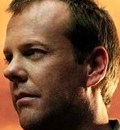It's about poetry but rap is poetry so it also applies to music. Note: I'm only talking about lyricism. I'm not saying if a rap verse isn't like this it's bad because rap obviously has other factors like flow and delivery and production. I can fuck with stuff like ASAP Rocky even though the lyricism is subpar. But this is a good explanation of why I consider guys like Eyedea, Slug & Kendrick to be the best rappers.
Alright. In replies to the multitude of "poetry can be anything! Someone's trash is someone else's treasure! You can't judge poetry, man!" You're wrong and I want to explain to you why you're wrong.
1.) Think of a poem as having a thesis line. This thesis line could be an observation you made that stimulates a question. You don't even have to have an answer to that question, but you're trying to get your thesis across like a paper. This could be, "Indecision has ruined my life," or, "my mother's drinking has not only distanced herself from my sister so much that all they share at this point is their now mutual love for drinking, a trait my sister most likely picked up to be like our mother." So now you have your thesis idea. What sparks your poem. And observations are fine, too, about nature or the history behind an old barn. Ted Kooser is great for this.
2.) Now you have a thesis. Great. Time to convey it and make that reader feel what you feel. Uh oh. There's the problem. In fact, it's become a harder problem, because the average person is assaulted with hundreds of television shows, advertisements, facebook posts, memes, pictures of words written on signs slathered on their social network sites, all competing for that person's emotion. Damn. And most of these have music and moving images trying to get through their hardening exterior. So how do you do it with your poem? This is where the craft of poetry comes in. You need to make something efficient and powerful. You have to build an engine under the hood of your poem and piece it together. If I come out and say, "I'm sad, you left me, now I'm mad." That's not going to go very far. Also, it doesn't get my thesis across, because I'm not specifying who left me, or what kind of sadness I'm feeling, or why it's turned to anger. While sometimes the who isn't important, we need a fresh way to explain the feeling. BUT if I just up and tell you, you're not going to feel it as strongly.
3.) IN poetry, you're trying to explain something beyond the words themselves. Poetry has so much more focus on it due to its size than prose. It's language distilled. And you don't see it until you start /analyzing/ professional poetry and have a professional explain to you what's going on in the poem that the poet intended to happen. Line breaks aren't just random snaps of line for the sake of lining up rhyme. Syntax, the length of a line, all are chosen to have a certain velocity.
Let's analyze something short and sweet. We're going to do W.S. Merwin's "Separation."
Your absence has gone through me / Like thread through a needle. / Everything I do is stitched with its color.
So how much is there to talk about here? Well, let's just touch on a couple of choices Merwin has made. First, he chooses a tercet (three-line stanza). Three line stanzas usually come off as evocative and self-contained. If they appear on after another, they can seem uncomfortable (which can work to the writer's advantage). Haiku, for an example, has been made a tercet in the west. So for a short poem, a tercet works extremely well.
The big feature, however, of Merwin's "Separation" is the contrast of absence going "through" the narrator. That's a big deal. Absence is almost always seen as a hole or an emptiness. Yet the narrator has been filled by it. How do we know the narrator isn't being stabbed through by something hollow? Because the comparison of what's moving through him is as thread through a needle. It's solid. It's tangible. It makes the absence real. The self-contained last line (as the previous two lines are a single sentence) has a lot of strength to it, as it gets the second point of the thesis across: everything the narrator does has some element of that absence showing in it. That's a big topic, and Merwin gets it across in three lines. Three frickin' lines. But, wait, there's more. Stitching is an act of construction and creation. So that absence isn't shown in just a superficial color. It's stitched, meaning it goes into the actions themselves, deeper down beyond the revealed color we can see.
Finally, consider the title to the poem. It's "Separation," not absence, which is the emotion he's feeling. This is something more permanent, more forced against the narrator's will. While it doesn't give us a complete view of the circumstances of the absence, it gives us an idea that it was forced upon the narrator, and possibly the "you."
Let me make for you this poem as most likely seen on r/poetry:
Absence
I feel your absence like an empty cart / like a hole in my heart / it hurts when I do anything without you.
This is a bad poem. Cart and heart have nothing to do with one another. It fails to extend the metaphor, it's obvious that they're made to force the rhyme, a now overbearing element to the poem. "Hole in my heart" is a cliche. It doesn't have any punch like fresh imagery does. And what better way to end this crap-fest than being told about an abstract emotion like pain. We're not surprised. We're not taken anywhere. This is a bad poem. Merwin's poem sounds like it's written by a Poet Laureate (and that poem isn't even close to some of his more masterful work). There is a massive difference between good and bad poetry. Good poetry has so much more going for it in depth. You can analyze it all day and see the elements of it all working together. Or could never go into those elements, read the poem, and still walk out surprised at how it made you feel and never know why.
That's good poetry.
TL;DR: Stop treating poetry like an arts and crafts project. It's not. It's a real art form. When you say that it can be anything and be good insults the last 2,000 years of effort by poets across the world.
An amazing explanation of lyricism.
15 posts
• Page 1 of 1
An amazing explanation of lyricism.
You think your personal attacks make up for what you lack?
-

classthe_king - Addict

- Posts: 14163
- Joined: Feb 12th, '09, 02:30
- Location: Ohio
- Gender: Male
Re: An amazing explanation of lyricism.


Lyricism is how the rapper expresses his theme, message, or emotions. Creativity is important in lyricism. Similes, metaphors, entendres, word play, punchlines, etc, all help make a verse more creative/original/lyrical
old school rap was so fucking goat, not a single bar was wasted... now you have rappers who rhyme for the sake of rhyming, thx god most of these guys don't blow up


-

King Lance - Pill Popper

- Posts: 8188
- Joined: Sep 11th, '12, 23:43
Re: An amazing explanation of lyricism.
Good read.
Songs of the year

Tech N9ne- Gods, Ft Krizz Kaliko and Kutt Calhoun.

Tech N9ne- Gods, Ft Krizz Kaliko and Kutt Calhoun.
-

momentsgolden - Soldier

- Posts: 1965
- Joined: Apr 5th, '11, 22:40
- Location: Zimbabwe
- Gender: Male
Re: An amazing explanation of lyricism.
mononym wrote:nice read
class i wonder how do you feel about jay electronica as a lyricist
extremely average

-

King Lance - Pill Popper

- Posts: 8188
- Joined: Sep 11th, '12, 23:43
Re: An amazing explanation of lyricism.
whats the point if you have to be an expert and analyze every line to be able to even tell the difference between good and bad poetry
Cause you'll never take my pride from me
It'll have to be bribed from me"
- marshall "sellout" mathers
It'll have to be bribed from me"
- marshall "sellout" mathers
-

Minimii - Trailer Trash

- Posts: 388
- Joined: Nov 18th, '12, 16:31
Re: An amazing explanation of lyricism.
Completely agree with this.
Great read...
I'm a big Eyedea fan, too.
Great read...
I'm a big Eyedea fan, too.

- MDRR
- Closet Cleaner

- Posts: 4
- Joined: Nov 11th, '12, 09:51
- Location: India
- Gender: Male
Re: An amazing explanation of lyricism.
@ Minimii: Uh... you don't have to analyse every line to differentiate good poetry from bad poetry. And, that wasn't the point classthe_king trying to make.
It isn't so hard to say WHICH of the two examples is clearly better, is it? o.o
It isn't so hard to say WHICH of the two examples is clearly better, is it? o.o
- MDRR
- Closet Cleaner

- Posts: 4
- Joined: Nov 11th, '12, 09:51
- Location: India
- Gender: Male
Re: An amazing explanation of lyricism.
hip hop is not always subjective
-

1LynguisticMind - Trailer Trash

- Posts: 310
- Joined: Oct 7th, '13, 14:50
Re: An amazing explanation of lyricism.
Lyricism is about how many multies you can cram in your songs while making sense

Ten toes down motherfucker I'm all in #Slumerican Team
TRShady is shutting down so you better move there:
www.HipHopShelter.com
-

Trimss - Bad Influence

- Posts: 17801
- Joined: May 1st, '10, 18:10
- Location: The Motor City
- Gender: Male
Re: An amazing explanation of lyricism.
Trimss wrote:Lyricism is about how many multies you can cram in your songs while making sense
heee heee

- Steelez
- Trailer Trash

- Posts: 294
- Joined: Oct 15th, '13, 22:34
Re: An amazing explanation of lyricism.
King Lance wrote:
Lyricism is how the rapper expresses his theme, message, or emotions. Creativity is important in lyricism. Similes, metaphors, entendres, word play, punchlines, etc, all help make a verse more creative/original/lyrical
old school rap was so fucking goat, not a single bar was wasted... now you have rappers who rhyme for the sake of rhyming, thx god most of these guys don't blow up
I'm not sure if you're trolling but...
"I'm dropping science like a scientist" - Rakim.
One of the most subpar, fucking laugh out loud, shitty similes coming from a rapper many consider the GOAT.
YAWK YAWK YAWK YAWK
Check out my latest song: https://www.triplejunearthed.com/artist ... vijilantee
Vijilantee on YouTube: https://www.youtube.com/channel/UCTN150 ... gEP76MWJZw
Like Vijilantee on Facebook: http://www.facebook.com/iamjvp
Check out my latest song: https://www.triplejunearthed.com/artist ... vijilantee
Vijilantee on YouTube: https://www.youtube.com/channel/UCTN150 ... gEP76MWJZw
Like Vijilantee on Facebook: http://www.facebook.com/iamjvp
-

MistaVijilantee - Soldier

- Posts: 756
- Joined: Oct 9th, '12, 10:04
Re: An amazing explanation of lyricism.
StayWideAwake wrote:MistaVijilantee wrote:King Lance wrote:
Lyricism is how the rapper expresses his theme, message, or emotions. Creativity is important in lyricism. Similes, metaphors, entendres, word play, punchlines, etc, all help make a verse more creative/original/lyrical
old school rap was so fucking goat, not a single bar was wasted... now you have rappers who rhyme for the sake of rhyming, thx god most of these guys don't blow up
I'm not sure if you're trolling but...
"I'm dropping science like a scientist" - Rakim.
One of the most subpar, fucking laugh out loud, shitty similes coming from a rapper many consider the GOAT.
Name me a GOAT that doesn't have a shitty line.
Fair point, but if Weezy had said that everybody would rag on him so much.
YAWK YAWK YAWK YAWK
Check out my latest song: https://www.triplejunearthed.com/artist ... vijilantee
Vijilantee on YouTube: https://www.youtube.com/channel/UCTN150 ... gEP76MWJZw
Like Vijilantee on Facebook: http://www.facebook.com/iamjvp
Check out my latest song: https://www.triplejunearthed.com/artist ... vijilantee
Vijilantee on YouTube: https://www.youtube.com/channel/UCTN150 ... gEP76MWJZw
Like Vijilantee on Facebook: http://www.facebook.com/iamjvp
-

MistaVijilantee - Soldier

- Posts: 756
- Joined: Oct 9th, '12, 10:04
Re: An amazing explanation of lyricism.
this thread make no sense imo
-

ronnie56 - Trailer Trash

- Posts: 382
- Joined: Oct 19th, '13, 00:19
- Gender: Male
Re: An amazing explanation of lyricism.
lyricism is shitty if your not saying anything with your rhymes lmao
-

ronnie56 - Trailer Trash

- Posts: 382
- Joined: Oct 19th, '13, 00:19
- Gender: Male
15 posts
• Page 1 of 1
Who is online
Users browsing this forum: No registered users
